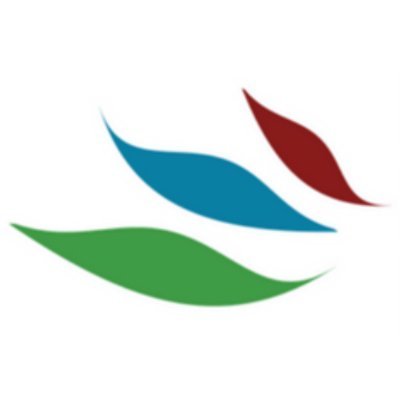
Recovery Research Institute at MGH
@RecoveryAnswers
Followers
31K
Following
3K
Media
4K
Statuses
6K
The Recovery Research Institute (RRI) @MassGeneralNews, a @HarvardMed teaching hospital. Enhancing #RecoveryThroughScience. Director @Johnkellymgh.
Boston, MA
Joined November 2011
Registration is now open for the 2026 Joint Meeting on Youth Prevention, Treatment, and Recovery! For more details and to learn more about the conference click here: https://t.co/baVAQKz9Xh|
#JMYPTR2026
0
1
2
Adolescent overdose deaths climbed in states with recreational cannabis legalization, especially among male and White teens. Whether the cannabis policy helped cause increased overdoses, however, remains unclear. Learn more: https://t.co/5NHh6y1j08
#RecoveryThroughScience
1
0
0
In a study testing which policies help reduce overdose, naloxone implementation and related policies helped, while prescribing limits & Medicaid policies had unintended consequences early on. Learn more: https://t.co/JmV1GaRR0g
#RecoveryThroughScience #opioids #overdose
0
0
0
Among adults experiencing homelessness in California, methamphetamine use is high, but only 5% are in treatment. Many want help but face barriers, highlighting urgent gaps in care. Read here: https://t.co/aNRl3sS1Kk
#RecoveryThroughScience #homelessness
0
0
0
Researchers analyzed real user reviews of alcohol reduction apps from credible sources. Only 8 of 400+ apps made the cut; users felt tracking, goal setting, reminders, and gamification helped them reduce drinking. Discover here: https://t.co/PQQbRuBItn
#RecoveryThroughScience
1
1
1
Black individuals with opioid use disorder may avoid buprenorphine or struggle with methadone due to side effects, medical mistrust, and confusing instructions, yet fear of overdose keeps them in treatment. Learn here: https://t.co/YQqMrx2f1Q
#RecoveryThroughScience
0
2
1
Members of the active recovery community, The Phoenix , felt the most support from others in recovery. Though the structure of their social networks, for example, the number of network members in recovery – was not related to this support. Learn more: https://t.co/14CIbGY9ij
0
0
0
Age matters: During early post-treatment, young people with substance use disorder become more engaged and have better substance use outcomes if they attend mutual-help meetings where other youth are present (Kelly, 2008). #RecoveryMonth #RecoveryThroughScience
0
1
1
Connecting youth to 12-step groups and peer support boosts recovery and mental health after treatment (Kelly, 2016) (Kelly, 2017). #RecoveryMonth #RecoveryThroughScience
0
1
1
Are you concerned about your child’s marijuana, alcohol, or other drug use? Your child may be eligible for an online research study to test a new clinical treatment compared to standard care for marijuana, alcohol, or other drug problems. Link here: https://t.co/xlUGlYjLoe
0
0
0
Thank you for celebrating Recovery Month with us! Here’s an easy-to-share infographic with 10 key findings from the National Recovery Study. We hope you enjoy learning about the science of recovery as much as we do! #RecoveryMonth #RecoveryThroughScience #science #recovery
0
1
2
Science is clarifying the power of recovery, and its benefits are immense for individuals, families, and societies. Enhancing recovery through science. #RecoveryMonth #RecoveryThroughScience #science #recovery
0
0
1
Among US adults who’ve resolved a substance use problem, 44% attended a mutual-help group, the most common choice for support. While groups like SMART Recovery are less common than AA and other 12-step programs, their popularity is growing. #RecoveryMonth
1
1
2
In the US, 45% of Black individuals in recovery said that spirituality “made all the difference” in their recovery journey, more than any other racial or ethnic group. #RecoveryMonth #RecoveryThroughScience #science #recovery
0
0
1
Among people who resolved a major drug or alcohol problem, 11% said they used online tools, like virtual recovery meetings, to help with their recovery. This was especially true for those with more serious cases. Since the COVID-19 pandemic, these results may be different now.
0
0
0
Join us today, Wednesday, September 24th, at 12:00pm EST for the Opioid Response Network webinar series, featuring Emily Hennessy on "Adolescent Recovery as a Social Process: Examining and Fostering Social Network Change”. Register for free: https://t.co/jznUgJ5t7P
1
1
1
54% of adults who have resolved a substance use problem do not use alcohol and other drugs, while 46% still use one+ substances. Even though resolving a substance use problem has benefits, those who do not use any substances usually have a higher quality of life...
0
5
5
People recovering from opioid use are less comfortable talking about their substance use history compared to those recovering from other drug problems suggesting there is more self-stigma around opioid use than other primary substances. #RecoveryMonth #RecoveryThroughScience
0
1
1
Only 1% of Veterans Affairs patients with stimulant use disorder received contingency management. Middle-aged, Black, or housing-unstable patients were more likely to get it, highlighting gaps in access. Learn more: https://t.co/lffVlWAM1M
#RecoveryThroughScience
0
2
3
Of the 22 million US adults in the National Recovery Study, there are many primary substances used, including drugs like opioids, stimulants, and cannabis. However, most people, 51%, say that alcohol is their primary substance reflecting the prevalence of alcohol use disorder.
0
0
1

